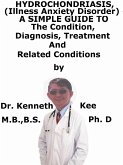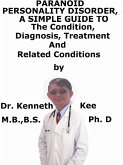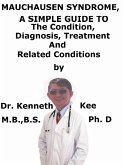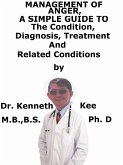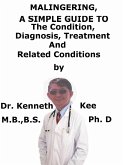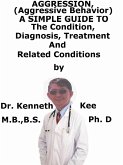I was going to write about confusion (like how blurred a person) but apparently delirium also has the same connotation but more severe.
Delirium is a medical disorder which causes sudden severe confusion due to rapid changes in brain function that occurs with physical or mental illness.
Causes
Delirium has most frequently been the result of physical or mental illness, and is usually temporary and reversible.
Many illnesses cause delirium.
The medical disorders are those that do not permit the brain to get sufficient oxygen or other substances.
Causes are:
1. Alcohol or sedative drug withdrawal
2. Drug abuse
3. Electrolyte or other body chemical disturbances
4. Infections such as urinary tract infections or pneumonia (more likely in people who already have brain damage from stroke or dementia)
5. Poisons
6. Surgery
Symptoms
The common signs of delirium are the decreased attention span and a waxing and waning form of confusion.
A rapid change between mental conditions (for example, from lethargy to agitation and back to lethargy) also occurs in delirium.
Symptoms are:
1. Clouding of consciousness or awareness
2. Difficulty maintaining or shifting attention (typically more alert in the morning, less attentive at night)
3. Confusion (disorientation) about time or place
4. Illusions - Changes in feeling (sensation) and perception
5. Hallucinations
6. Fluctuating levels of consciousness - Changes in level of consciousness
7. Dysphasia
8. Dysarthria - Disorganized thinking, such as talking in a way that does not make sense
9. Tremor - Movements triggered by changes in the nervous system
10. Asterixis in hepatic encephalopathy and uremia
11. Motor abnormalities - (may be slow moving or hyperactive)
12. Problem concentrating
13. Decrease in short-term memory and recall
14. Emotional or personality changes, such as agitation, anger, irritability, depression, overly happy
15. Changes in sleep patterns, drowsiness
16. Incontinence
Diagnosis:
The diagnosis of delirium is clinical.
There is no laboratory test that can confirm a diagnosis of delirium.
Identification of delirium is by:
1. Confusion Assessment Method (CAM)
2. Delirium Symptom Interview (DSI)
3. Confusion Assessment Method for the Intensive Care Unit (CAM-ICU)
4. Intensive Care Delirium Screening Checklist (ICDSC)
The severity of delirium symptom can be checked by the Delirium Detection Scale (DDS) and the Memorial Delirium Assessment Scale (MDAS).
Many of the tests done may have abnormal results:
Treatment
The purpose of treatment is to control or reverse the cause of the symptoms.
The patient may be required to stay in the hospital for a short period.
Cessation or change of medications that make confusion worse may help to improve the mental function.
Medical disorders that make the confusion worse should be treated:
1. Anemia
2. Decreased oxygen (hypoxia)
3. Heart failure
4. High carbon dioxide levels (hypercapnia)
5. Infections
6. Kidney and liver failure
7. Nutritional disorders
8. Psychiatric conditions (such as depression)
TABLE OF CONTENT
Introduction
Chapter 1 Delirium
Chapter 2 Causes
Chapter 3 Symptoms
Chapter 4 Diagnosis
Chapter 5 Treatment
Chapter 6 Prognosis
Chapter 7 Confusion
Chapter 8 Dementia
Epilogue
Dieser Download kann aus rechtlichen Gründen nur mit Rechnungsadresse in A, B, CY, CZ, D, DK, EW, E, FIN, F, GR, H, IRL, I, LT, L, LR, M, NL, PL, P, R, S, SLO, SK ausgeliefert werden.




